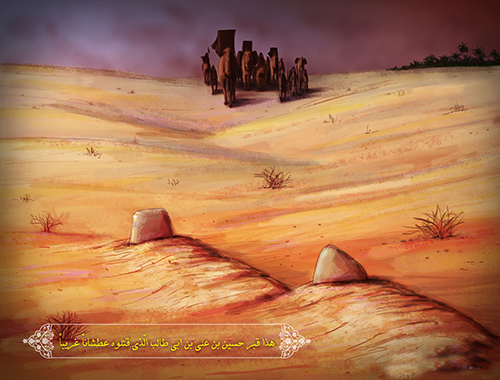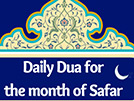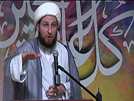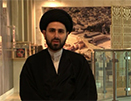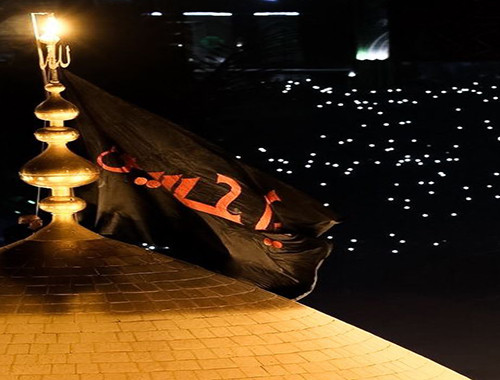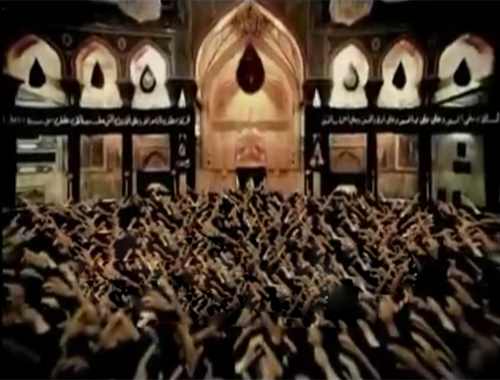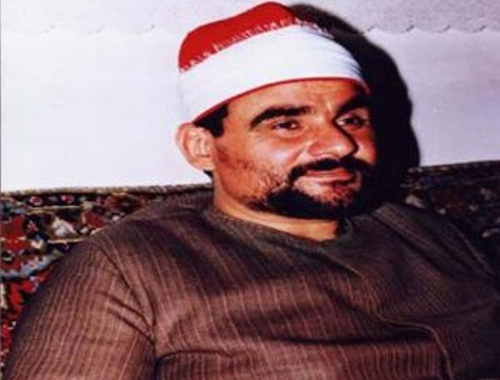Verses 1-5
- Details
- Hits: 2335
Sura 'Alaq
(The Clot)
No. 96 (Verses 1-5)
بسم الله الرحمن الرحيم
(1)اقْرَأْ بِاسْمِ رَبِّكَ الَّذِي خَلَقَ
(2)خَلَقَ الْإِنسَانَ مِنْ عَلَقٍ
(3)اقْرَأْ وَرَبُّكَ الْأَكْرَمُ
(4)الَّذِي عَلَّمَ بِالْقَلَمِ
(5)عَلَّمَ الْإِنسَانَ مَا لَمْ يَعْلَمْ
In The Name of Allah , The Beneficent, The Merciful
1. Read (Proclaim!) In the Name of your Lord who created
2. Created man, out of a clot (of congealed blood).
3. Read (Proclaim), and your Lord is the Most Generous,
4. who taught by the Pen,
5. Taught man that which he knew not.
The Occasion of the Revelation:
As it was mentioned in the description of the content of this Sura, the majority of commentators believe that this is the first Sura that came to the heart of the holy Prophet (p.h.u.h.) Some have even said that all the commentators believe that the first five verses, of the Sura, were the first direct Revelation to the holy Prophet (p.b.u.h.). Their contents confirm this idea, too.
Some narrations denote that the holy Prophet (p.b.u.h.) had gone to Mount Hira when Gabriel came and told him: Iqra' (Read/ Proclaim). He said that he was not 'versed'. Gabriel embraced him and told him again to proclaim; and the Prophet (p.b.u.h.) repeated the same answer. Gabriel embraced him for a second time, but was given the same answer. Then, for the fourth time he told him: Read (Proclam!) In the name of your Lord who created, (and recited the first five verses).
Finishing the verse, Gabriel then took leave from the Prophet(p.b.u.h.). The Messenger of Allah, his energy spent due to receiving the first rays of Revelation, went to his wife, Khadijah, and told her: Cover me; wrap me in a mantle..
The following is a tradition from Tabarsi, in Majma'-al-Bayan, and he cites that the Messenger of Allah told Khadijah that whenever he was alone he heard a voice.
According to Tabarsi, Khadijah told Mohammad (.b.u.h.): Allah will not bring anything on you but goodness because you are trustworthy and pay the deposits, you observe bonds of relationship, and you are truthful in speech.
Khadijah said this statement and, then, she went to see Waraqah-ibn Nufil. (He was Khadijah's cousin and was of the knowledgeable Arabs.) She described to him what had happened to Mohammad (p.b.u.h.) and added that he had heard the voice say: O Mohammad say: 'Bismillah-ir-Rahman-ir-Rahim, al-Hamd-u-lillah-i-Rabb-al-'alamin (to the end of Sura Fatihah)'; and say: 'La Ilaha Illallah'..
Waraqah said: Rejoice thou! Rejoice thou! According to what is mentioned in Taurat and Ingeel it is clear that he is the Messenger of Allah and he is the very one that Jesus Christ told about in his glad tidings. He has a religion like that of Moses; he is an apostle. He will be told to fight in the Holy war soon after this, and if I am alive then, I will be with him in that Holy War.
Later, when Waraqab died, the Messenger of Allah said: I saw him in Heaven (the Heaven of the Lesser Judgment) having a high rank for he had believed in me and confirmed me.
There are, of course, some unflattering statements cited in various history books or some commentaries about this period of Mohammad's life which seem incorrect. They are probably inserted by the enemies of Islam to taint both the idea about this divine religion and the person of the holy Prophet (p.b.u.h.). Regarding what was said above, we are only concerned, here, with these commentaries of the verses, which will be cited in this text.
* * * *
Commentary:
Read (Proclaim!) In the Name of your Lord!
In the first verse of the Sura, it addresses the holy Prophet (p.b.u.h.) and says: Read (Proclaim)! In the Name of your Lord Who created.
Some have said that the object is not mentioned in the sentence, which basically would be: 'Read (Proclaim) the Qur'an in the Name of your Lord', and that is why they have considered this verse as an evidence that /bismillah/ is combined with the Suras of Qur'an.
It is worthy to note here, first of all, that the emphasis is on the proposition of Lordship and we know that /rabb/ means a 'reformer Lord' , the one who is both the master and the cherisher.
Then, to establish the Lordship of Allah , it emphatically refers to the 'creation and the existence of this universe', because the best reason for His Lordship is His Creative attribute. The One Who runs and sustains the universe is its Creator.
This is, indeed, an answer to the pagan Arabs who had accepted the creative power of Allah, but, they assumed the lordship and device of this world for their own idols and gods, Besides, the Lordship of the Lord and His Device, in this World, are the best evidence for proving His Being.
* * * *
Then, amongst all the creatures of the world, it emphasizes on the best and the most important of them, i.e Man, and referring to his creation, it says:
Created man out of a clot (of congealed blood).
The term /'alaq/ originally means 'to adhere to something', and hence, some congealed blood or a leech which sticks to the body to suck blood, is called /'alaq/. Since the life-germ, in the course of its first processes until it becomes a foetus, changes to a type of sticking clot which is apparently very worthless, it is, indeed, the basic origin of the creation of Man, then, it makes the power of Allah clear that it is He Who is able to create such a worthy creature from such a lowly unworthy thing.
Some have also said that the objective point of using /'alaq/, here, is due to the clay of which Adam came from and which was sticky, too. It is obvious that the Creator Who creates this wonderful creature from that sticky piece of clay is apt to be worshipped.
Furthermore, some have considered the term /'alaq/ as meaning 'a possessor of kindness and affection'. This refers to the social and gregarious manner of men and the love they have for each other which is the main basis of Man's development and progress in the history of his civilization.
Again, some have thought of the term /'alaq/ as referring to 'the male seed' which they thought much resembled a 'leech'. It was their understanding that this microscopic creature, which swims in the fluid of men, approaches the woman's 'seed', in the womb, and adheres to it and that by the combining of these two complete 'seeds' Man came into being.
It is true that at the time of the appearance of Islam these problems were not known to Man, but the Holy Qur'an, as a scientific miracle, unveiled the true meaning.
Among these four commentaries, the first one seems more clear, although to combine all of them, together, is also possible.
It is understood, then, from what was said in the above that 'man', according to one commentary, means Adam, and, according to the other three commentaries, means only 'Man'.
* * * *
To emphasize the matter, again it says:
Read (Proclaim), and your Lord is the Most Generous.
Some believe that the second /iqra'/ 'read (proclaim)' is an emphasis on the first /iqra'/ in the previous verses, while some others say that they are different. In the first sentence, the term requires the Prophet (p.b.u.h.) to read (proclaim) to himself and, in the second sentence, it means to read (proclaim) to people. But, the idea of emphasis seems more appropriate because there is no evidence available to show the difference between them.
In any event, this verse, in fact, is an answer to the statement of the Prophet (p.b.u.h.) who responded to Gabriel saying: 'I am not versed' ; and it means: you can read (proclaim) because of the extreme graciousness and the extraordinary generosity of your Lord'.
* * * *
Then, it tells about Allah Who is the Most Generous and says:
who taught by the Pen.
* * * *
Taught man that which he knew not.
In fact, these verses are also an answer to that very statement of the Prophet (p.b.u.h.) who said: 'I am not versed'. Now, it replies that it is the same god who taught the human being by the 'pen', and taught him the things that he did not know, and Who is capable of teaching a servant, like 'you', who does not know how to read.
The verse Who taught by the Pen can be rendered in two ways. The first is that: Allah taught writing and the book to Man and it is He who is able to do this portent; to establish the origin of all sciences, knowledge and civilizations in him.
The second meaning is that through this way and by this means Man is taught all of the sciences and knowledge.
In short, according to one commentary, the objective meaning is 'teaching how to write' and another commentary says the objective meaning is 'the sciences taught to man by writing'.
In any case, this is an expressive statement, full of meaning, that was issued in these great verses at the sensitive moments of the onset of revelation.
* * * *
Explanations:
The First Revelation Was Accompanied by a Sciential Movement
These verses, as was mentioned before, according to the belief of most or all commentators, are the first rays of the Divine Light that glittered in to the holy heart of the Prophet fp.b.u.h.). This incident was a new door opened to humanity, and a new chapter was founded in the history of the human race, and, then, Mankind was bestowed one of the greatest Blessings of Allah. The most complete divine religion, which was the last of all religions, was descended. And after that descent, all the precepts of the religion, the ordinance of Allah, was completed according to the sense of ...this day have I perfected your religion for you, completed my favour upon you, and have chosen for you Islam as your religion...., (Sura Ma'idah, No. 5, verse 4).
It is interesting to note that the fact is the Prophet (p.b.u.h) was unlettered and was not taught, and at the time when the territory of Hijaz was filled with ignorance, in the first verses of this Sura, of the revelation, the proposition of 'science and the Pen' is emphasized which is mentioned immediately along with the great blessing of 'creation'.
In fact, at first these verses tell about the devolopment of the 'body' of Man from such an unworthy thing as a clot, and on the other hand, they speak about the development of his 'soul' by means of training and education, especially by the pen.
On the day when these verses were revealed, not only in the territory of Hijaz, which was the territory of ignorance, few people valued the pen, but, also, in the civilized world of that time, the pen was worth little.
Today, however, we know that the basis of whole civilizations, different kinds of knowledge, and the progresses of Man in different fields pivots on the existence of the 'pen'. The rank of scholars has preceded that of the martyrs, because the source for the appearance of the martyrs is really in the ink of the scholars' pen, and, basically, it is their 'pen' that can change the destiny of individuals in different societies.
In communities, improvements often start by the pen of faithful, believing people who feel responsibility, but, also, vice and corruption originate from poisonous pens, too.
That is why the Holy Qur'an makes an oath to the 'Pen' and to what the 'Pen' produces, thus:
Nun. By the Pen and by the (Record) which (men) write, (Sura Qalam, No. 68, verse 1).
We know that the whole life of the human being is divided into two distinct periods: The historical period and the prehistorical period.
The historical period begins from the time that the invention of writing appeared on the scene and Man used the 'pen' and was acquainted with reading and writing and, as a consequence, Man could leave some traces from his life for later generations. Hence, the history of Man can be dealt with from the date he could use the 'pen'; when the 'pen' and 'writing' appeared in the history of Man's life.
Therefore, from the very early beginning, Islam was founded on the basis of the 'Pen' and 'knowledge'; and it is for this same reason that backward people of early Islam could progress in science so much so that they succeeded in introducing and exporting new scientific findings to Europe and all over the world. As the popular European historians confess, it was the light of the knowledge of Muslims that enlightened the darkened feature of medieval Europe and let them enter the gate of the Golden age.
There are many books, in this field, supplied by the European writers, themselves, under different titles such as 'The History of the Civilization of Islam', or 'Islamic Heritage'.
How disgraceful is a nation with this historical background and with a rich religion like this to fall behind in the path of science and be in need of non-Muslim nations or even dependant on them!
* * * *
Remembrance of Allah in any Condition:
At first, the invitation of the Prophet (p.b.u.h.) started with the remembrance of the Name of Allah: Read (Proclaim)! In the Name of your Lord...
And it is interesting that the whole fruitful life of the Prophet (p.b.u.h.) was associated with His remembrance.
The remembrance of Allah accompanied each of his breaths; in his rising, sitting, sleeping, walking, riding, starting, stopping, all in all; he was always with the Name of Allah.
When he awakened he used to say: Praise be to Allah, who raises us after our death: and unto Him is the Resurrection.
Several traditions similar to the above-mentioned one are also cited which conform to this idea. (1)
(1) Fi-Zalal-il-Qur'an, vol. 8, p. 619.

